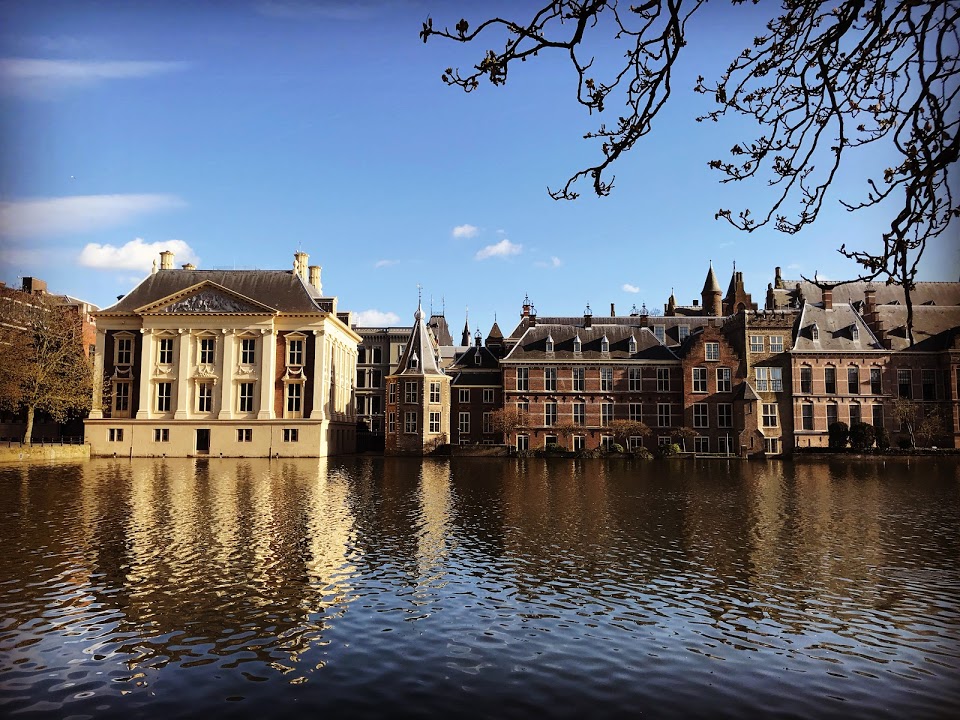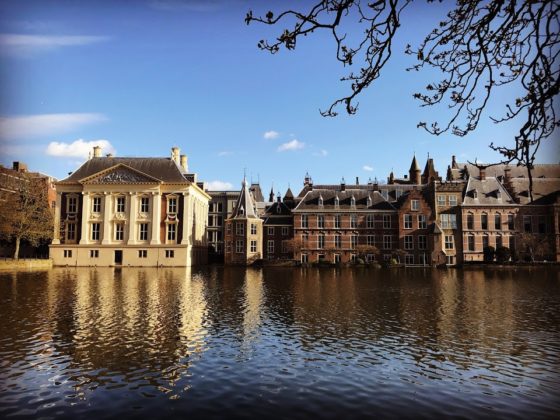What are they on about? Untangling the jargon of national politics


Outsiders often regard the Dutch political system as impenetrable, thanks to its incomprehensible jargon and closed doors. So here are 12 words you need to understand if you want to have a vague idea what is going on.
Den Haag is shorthand for Dutch national politics. Amsterdam is the capital but The Hague is the seat of government where de hoge heren (the elite), decide our fates. The parliamentary complex itself is know as the Binnenhof.
Het Torentje, or little tower, is part of the parliamentary complex and it is where the prime minister holds office, complete with teddy bears and a painting of Thorbecke . It’s a place once removed from parliament itself, where deals can be worked out away from prying eyes.
Not a million miles away from the Torentje are the Binnenhof achterkamertjes, the backrooms where deals are – allegedly – also concocted in secret. Ministers are always being accused of practicising achterkamertjespolitiek.
Another term connected with the hidden machinations of government is wandelgangen, the Binnenhof corridors (leading to the achterkamertjes) where Mark meets Hugo and an informal chat between them is overheard or leaked by, say, Mark or Hugo. This leak the finds its way into the media sourced as as ‘the wandelgangen have it’.
The proper way of communicating with the press is via Nieuwspoort. It is the name of the international press centre in The Hague where the prime minister talks to the press and where booze flows freely among journalists, lobbyists and politicians and gossip abounds.
As we have seen in the last year the public is directly kept abreast of developments not only via press conferences but by means of pers momenten. We are very sorry, but we do not have a clue what the difference between the two is and nor does anyone else.
Pluche stands for power. It goes back to the times when politicians parked their bottoms on the soft furnishings, or pluche, of their government seat once elected. If you see a reference to it, it is usually to say that they are too attached to it. Former MP and now Amsterdam mayor Femke Halsema named her political memoir Pluche.
This brings us neatly to zetelroof, which refers to politicians who do not agree with their party but cannot bear to let go of the pluche so decide set up shop for themselves, even though they were elected for another party. They are literally committing ‘seat robbery’ which is completely legal. There are currently 18 parties in the Dutch parliament and some of the spin-offs which won legitimacy in the March general election started out as zetelroof.
With that many parties it’s not surprising that polderen, the great Dutch art of compromise, is the order of the day. A polder is the name given by the Dutch to land reclaimed from the sea or lakes, and polderen derives from the way people would work together to keep the waters at bay. More specifically, partners in the poldermodel are the government and the social partners or employers organisations and unions. Difficult issues, such as reforming pensions are discussed ‘in the polder’ before the government draws up legislation which it knows enough people will agree with.
It is precisely in connection with poldering that the poppetjes – literally figurines – are often mentioned by political commentators when they want to refer to putting together coalitions and selecting ministers. So a classic Trouw headline ‘Politiek Den Haag maakt zich op voor de poppetjes‘ really means: politicians and journalists are looking forward to deciding who will be a minister in the new cabinet.
The man who thinks the oppositie is about one poppetje in particular is PVV leader Geert Wilders who likes to describe himself as ‘the leader of the opposition’ to foreign journalists. In the Dutch political system anyone not in the government is necessarily a member of the oppositie and they are certainly not likely to gather around Geert.
Thank you for donating to DutchNews.nl.
We could not provide the Dutch News service, and keep it free of charge, without the generous support of our readers. Your donations allow us to report on issues you tell us matter, and provide you with a summary of the most important Dutch news each day.
Make a donation